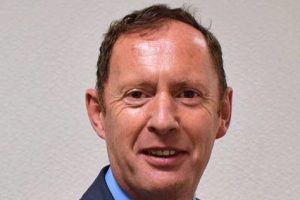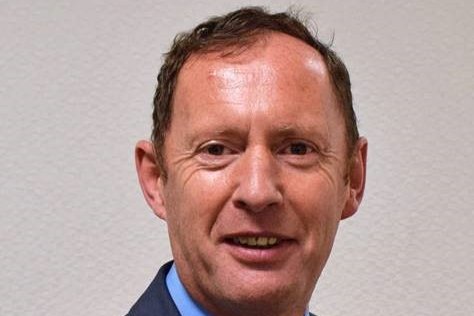A proper evaluation of the risks, returns and conflicts of interest will be key in any decision, writes the chair of the LGPS Advisory Board.
Roger Phillips will speak at the LGC Investment & Pensions Summit on 10-12 September. View the programme here, and book your place here.

Roger Phillips, chair of the LGPS Advisory Board
As anyone in the world of investment knows, stability and certainty are the basis on which to build growth and prosperity, but we live in globally challenging and changing times and that’s certainly true also in the Local Government Pension Scheme.
The government’s Fit for the Future consultation and associated Pension Schemes Bill passing through Parliament will mark significant changes in the future governance and investment of the 86 LGPS funds in England and Wales and their six super-pools.
The responsibility for administering and paying pension remains with funds together with setting their investment strategy, but the specific decisions on where to invest will be the responsibility of the pools when all investments are passed to them to manage by 31 March next year.
Scrutiny of pools
This brings issues of how pools will be held to account, advice verified, and conflicts of interests identified and managed. The LGPS will maintain its high profile, operating under high levels of transparency and accountability while wrestling with delivering the necessary return levels and responsible investments.
As new regulations on governance and member knowledge and skills come into being, so the scrutiny the pools will intensify. The role of fund chairs and shareholder representatives will be more important going forward. The relationship between funds and their pools to date has been developing, but getting a better understanding between the pool and its partner funds will be critical in the future.
Care and consideration of costs and value for money must not be forgotten
Pooling has always offered the potential for closer working and sharing of best practice between funds on a range of matters. I look forward to welcoming all fund chairs to the Scheme Advisory Board assembly meeting on 22 October where we can work collectively on mapping a way forward.
The decision to reduce the pools to six has created 21 ‘orphan funds’ and while initially there has been focus on where they will find new homes, attention will then shift on the implications on the new hosts and the extra pressures that may place upon existing structures and relationships.
While this dismantling and scaling up is happening at quite a pace, care and consideration of costs and value for money must not be forgotten. In a sector where tightening budgets and service cuts have and continue to be the norm, gaining and paying the necessary talent for investment decisions will not sit easily.
The ongoing process of local government reform in the shires of England creates more complexity and it is to be hoped that the opportunity to separate the pension funds from the administrating councils accounts will not be missed in all these activities.
Local investment
For years successive governments have been concerned that despite the large collective value of its assets, the LGPS did not punch its weight in investment terms – hence the original establishment of the pools in 2016.
Operating within a tight fiscal regime this government sees the opportunity for our local pension funds to support investment in the UK, and the Pension Schemes Bill seeks to place a duty on funds to cooperate with strategic mayoral bodies on local infrastructure.
Some projects can be controversial locally and some funds will not wish to participate in them
As the Scheme Advisory Board’s own scheme annual report last year showed, funds have already been investing in the UK economy including social housing, and will be interested in further investment.
However, the fiduciary duty of funds is to ensure they can pay pensions, including to some of the lowest paid workers in the public sector, and that is a fundamental principle that no one in or associated with the LGPS should ever forget. A proper evaluation of the risks, returns and conflicts of interest will be key in any decision.
There is a need to understand that a pipeline of projects needs to be matured that are attractive to a wide spectrum of investors, recognising that some projects can be controversial locally and some funds will not wish to participate in them due to opposition from scheme members or employers.
All these changes are happening against a background of local valuations already in train that look set to reveal improved funded levels and many funds will be in the welcome position of discussing how to respond to these apparent surpluses.
Minister’s power
But maintaining high standards of administration and proper management of cashflow must still remain the focus of funds and their pools. New powers are proposed for the secretary of state in the bill, and it is to be hoped that the current and any future secretary will recognise that the use of direction from the centre must be the last resort.
Encouraging collaboration and working at sensible and realistic pace within the sector is likely to achieve better efficiencies and improvements in the longer term and less disruption in the short term.
The Scheme Advisory Board has since its inception acted as a conduit between the department and funds, playing an important role in getting evidence, better understanding and good practice across the sector.
I am proud of how some of the initiatives the board has driven are now becoming industry practice, for example through our cost transparency initiative and our work on the gender pensions gap. Throughout, the reputation of this very public pension fund with its more than six and half million members has remained high, and that should not be forgotten.
We must keep focused as we navigate ourselves though these changes and global challenges.
Roger Phillips (Con), chair, LGPS Advisory Board
Roger Phillips will speak at the LGC Investment & Pensions Summit on 10-12 September. View the programme here, and book your place here.

